Resources
This is a list of resources to keep the Schulich School of Medicine & Dentistry community informed. Resources external to Western University are offered as connections and opportunities for learning and sharing knowledge, not explicit endorsement. This is a non-exhaustive list and will be updated regularly.
If you're aware of additional resources that aren't currently included here, please feel free to get in touch with us via email at edid@schulich.uwo.ca.
University Resources
Western Resources
Office of Indigenous Initiatives
Office of Indigenous Initiatives – Guidelines for Working with Indigenous Community Members (PDF)
More than Words: A Guide to Land Acknowledgements at Western University
Indigenous Land Acknowledgment Guide (PDF)
This Guide aims to provide context around giving land acknowledgements at Western University, offering reflection questions along the way that will aid in writing your own oral land acknowledgement
Indigenous Teaching and Learning Resources
This unique online education series is geared toward university instructors with the goal to increase their understanding of the colonial roots of the academy, the movement to transform universities to be more inclusive of Indigenous peoples, and to inspire them to move toward decolonizing their pedagogies.
Guide for Working with Indigenous Students
Reducing demands on campus EDI experts through self-guided curriculum decolonization by Heather Campbell, Western University
Schulich Resources
Indigenous Medical Student Pathway
Indigenous Dental Student Applicants
Indigenous MedLINCs is a six-week summer elective program through Schulich Medicine Distributed Education that places medical students with the Chippewas of Nawash and Saugeen First Nation communities in the Grey-Bruce region.
EDI-D and Indigenous Research
More Opportunities for Learning
Indigenous-Centered Organizations related to Medicine, Dentistry, and Health Education
Indigenous Physicians Association of Canada
Indigenous Dental Association of Canada
Indigenous Medical Students Association of Canada
National Collaborating Center for Indigenous Health
The National Consortium for Indigenous Medical Education (NCIME) - direct link to Resource Catalogue
Research, Data Governance and Data Sovereignty
First Nations Information Governance Center
First Nations Principles of OCAP – "The First Nations principles of ownership, control, access, and possession – more commonly known as OCAP® – assert that First Nations have control over data collection processes, and that they own and control how this information can be used."
General Resources
Decolonizing Health Professions Educational Programs
Whose Land Is It Anyway? A Manual for Decolonization - Access to the full book
United Nations Declaration on the Rights of Indigenous Peoples (PDF)
The Declaration on the Rights of Indigenous Peoples is a global human rights instrument adopted by the United Nations General Assembly on September 13, 2007 as “the minimum standards for the survival, dignity and well-being of the indigenous peoples of the world.”
National Center for Truth and Reconciliation
Truth and Reconciliation Commission of Canada: Calls to Action (PDF)
Beyond 94 - a website that monitors progress on the Truth and Reconciliation Commission’s 94 Calls to Action
Canadian Medical Association – Indigenous Health
First Nations Health Authority – Cultural Safety and Humility
Universities Canada’s commitments to Truth and Reconciliation
Books
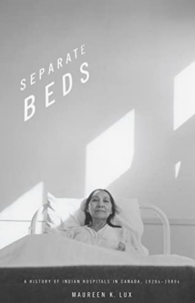 |
Separate Beds: A History of Indian Hospitals in Canada, 1920s-1980sby Maureen K. Lux Separate Beds is the shocking story of Canada's system of segregated health care. Operated by the same bureaucracy that was expanding health care opportunities for most Canadians, the "Indian Hospitals" were underfunded, understaffed, overcrowded, and rife with coercion and medical experimentation. |
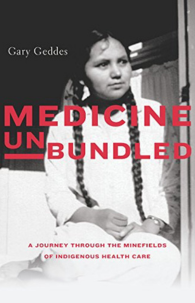 |
Medicine Unbundled: A Journey through the Minefields of Indigenous Health Careby Gary Geddes Gary Geddes turned the investigative lens on his own country, embarking on a long and difficult journey across Canada to interview Indigenous elders willing to share their experiences of segregated health care, including their treatment in the "Indian hospitals" that existed from coast to coast for over half a century. |
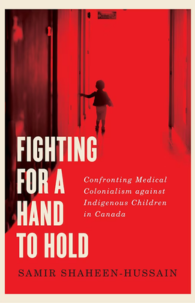 |
Fighting for a Hand to Hold: Confronting Medical Colonialism against Indigenous Children in Canadaby Samir Shaheen-Hussain, Cindy Blackstock, et al. Launched by healthcare providers in January 2018, the #aHand2Hold campaign confronted the Quebec government's practice of separating children from their families during medical evacuation airlifts, which disproportionately affected remote and northern Indigenous communities. |
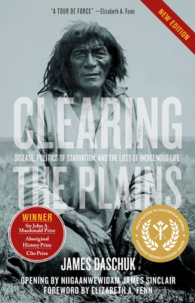 |
Clearing the Plains: Disease, Politics of Starvation, and the Loss of Indigenous Lifeby James Daschuk Ph.D, Elizabeth A. Fenn, et al. Revealing how Canada's first Prime Minister used a policy of starvation against Indigenous people to clear the way for settlement, the multiple award-winning Clearing the Plains sparked widespread debate about genocide in Canada. |
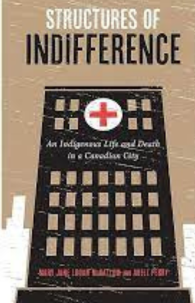 |
Structures of Indifference: An Indigenous Life and Death in a Canadian City
by Adele Perry and Mary Jane Logan McCallum Structures of Indifference examines an Indigenous life and death in a Canadian city and what it reveals about the ongoing history of colonialism. |
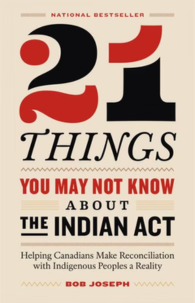 |
21 Things You May Not Know About the Indian Act: Helping Canadians Make Reconciliation with Indigenous Peoples a Realityby Bob Joseph Based on a viral article, 21 Things You May Not Know About the Indian Act is the essential guide to understanding the legal document and its repercussion on generations of Indigenous Peoples, written by a leading cultural sensitivity trainer. |
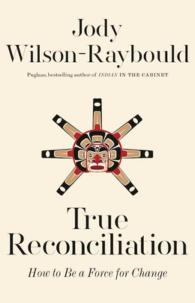 |
True Reconciliation: How to Be a Force for Changeby Jody Wilson-Raybould There is one question Canadians have asked Jody Wilson-Raybould more than any other: What can I do to help advance reconciliation? It is clear that people from all over the country want to take concrete and tangible action that will make real change. We just need to know how to get started. This book provides that next step. |







